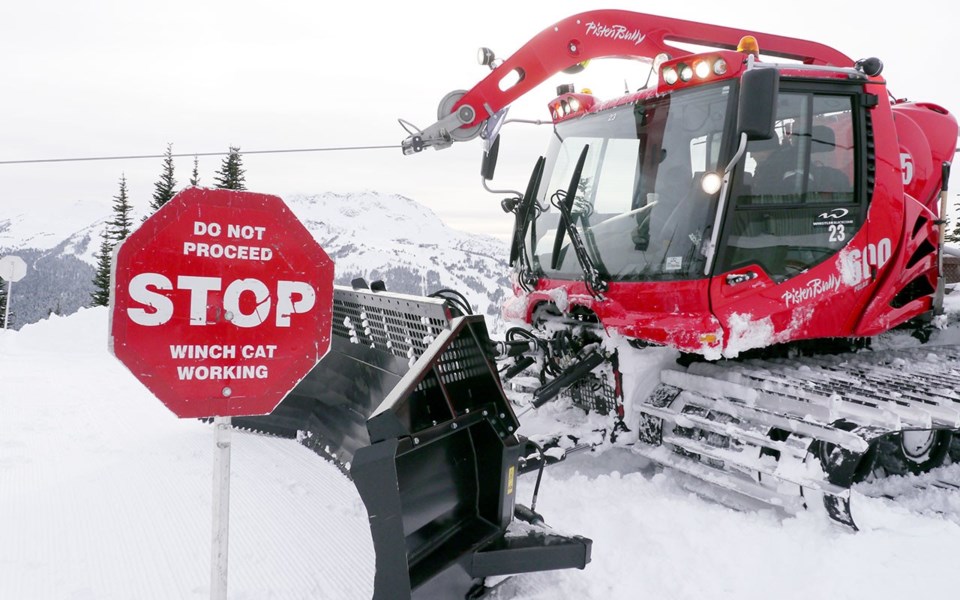In light of significant safety concerns for both staff and skiers and boarders, Whistler Blackcomb (WB) is trying to get an important message out to the wider public: When terrain is closed, stay off the mountains.
This year has seen instances of backcountry recreationalists using WB terrain to access Garibaldi Provincial Park when the resort is closed, skinning or walking up before the mountain officially opens.
"When we're operating after hours, it's still a big, huge plant we're operating, with lots of moving parts," explained Adam Mercer, patrol director for WB. "We want to get through to people that we do have a policy around uphill access on Whistler Blackcomb."
As noted on the resort's website, that policy clearly states that uphill skiing is not permitted on Whistler or Blackcomb mountains at any time, with the exception of the designated Flute Bowl footpath when conditions permit.
There are, of course, a host of serious accidents that could result from trespassing in the early hours of the morning, as groomers, snowcats, and patrol buzz around the mountain preparing for the day in marginal light.
"(WB) is a 24-7 operation," said Mercer. "So there are a number of things going on after hours, which from time to time include avalanche control."
He emphasized that WB is not discouraging people from accessing the backcountry—it just wants people to do so at designated access points when conditions permit.
From the base of Whistler Mountain, users can access Garibaldi Provincial Park via Singing Pass.
In addition, there are two official access points into the park from the resort, at the top of Flute on Whistler and via the Blackcomb Glacier. These areas include an information kiosk, as well as transceiver checkers, and are accessible when the mountain is fully open, when all lifts and all zones are operational.
"We've got people that are accessing the backcountry (through designated areas), and then we've got people using ski-touring equipment, snowshoes, or walking within our ski-area boundary and walking up. To me, they're two different issues," said Mercer.
Marc Riddell, communications director for WB, noted that there has been significant growth in ski touring in recent years, attracting new people into the sport that may assume that skinning up in the early morning is acceptable.
Noting that that segment of WB's guests is small, Riddell said some may look at the layout of the area and say, "Hey, we know that there is a provincial park behind the resort. We're just going to walk through this tenure, because it's a heck of a lot easier making it up there than making our way up Singing Pass."
Mercer underlined that trespassing in the resort jeopardizes the safety of both staff and guests. He encouraged people to look out for each other, and to let people know that poaching the resort is unacceptable if they see someone doing it.
"It's a big mountain community," he said. "You kind of take care of each other out there."
To learn more about WB's uphill-skiing policy and information regarding backcountry travel, check out the following website: whistlerblackcomb.com/the-mountain/about-the-mountain/backcountry.aspx.




